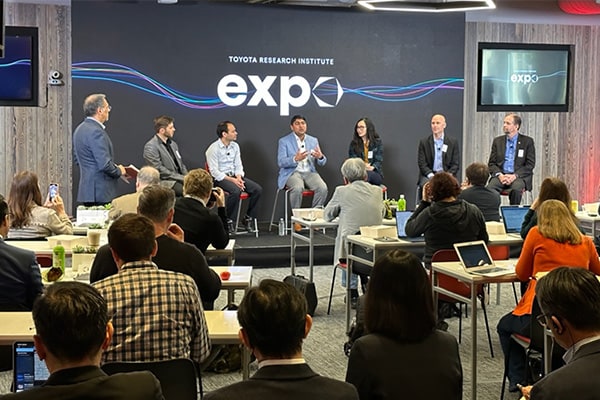
Toyota Research Institute Invests Over $100M in a Collaborative Research Program with U.S. Universities
In a groundbreaking move to advance technological innovation, the Toyota Research Institute (TRI) has announced a significant investment of over $100 million in a collaborative research program with prominent U.S. universities. This ambitious initiative aims to foster breakthroughs in human-centered artificial intelligence (AI), human interactive driving, machine learning, and robotics. In line with their commitment to driving innovation and fostering growth, Toyota of Plano actively supports this endeavor. Together, this bold partnership between Toyota and academia represents a pivotal moment in propelling the future of transportation forward and enhancing human lives through cutting-edge research and development.
Toyota's Commitment to Advancing Technology:
Toyota has long been at the forefront of automotive innovation and has consistently demonstrated its commitment to pushing the boundaries of technological advancements. The establishment of the Toyota Research Institute in 2015 further solidified the company's dedication to transforming the mobility landscape. By investing substantial resources in collaborative research, Toyota aims to accelerate the development of transformative technologies that will shape the future of transportation.
Advanced Robotic Capabilities:
The Columbia Artificial Intelligence and Robotics (CAIR) Lab, led by Computer Science Assistant Professor Shuran Song, collaborated with the Toyota Research Institute (TRI) to develop robotic capabilities for handling deformable objects. Their research resulted in robots successfully folding laundry and manipulating flexible bags. The team's algorithm, Iterative Residual Policy (IRP), earned them a Best Paper Award at RSS 2022 for its effectiveness in complex, repeatable tasks. Professor Song expressed gratitude for the partnership with TRI and the opportunity to leverage industry-level resources for driving their research. The collaboration showcases the potential of combining academia and industry technology to advance robotics and artificial intelligence, with promising applications for the future.
Fuel Cell Catalyst Durability:
Another crucial aspect of the collaborative research program is focused on enhancing fuel cell catalyst durability. Fuel cells are a promising technology for clean energy production and are particularly relevant to electric vehicles. By improving catalyst durability, researchers aim to increase the efficiency and longevity of fuel cells, making them more practical and cost-effective for widespread adoption.
Fuel cell vehicles offer several advantages over traditional internal combustion engines, including zero-emission operation and longer driving ranges. The research conducted through this collaboration will contribute to overcoming technical challenges, such as catalyst degradation, and ultimately accelerate the commercialization of fuel cell technology.
Computational Governor:
The collaborative research program also emphasizes the development of a computational governor. This refers to the creation of advanced AI systems that can effectively regulate and optimize autonomous vehicles' behavior in real-time. By integrating machine learning algorithms and data-driven decision-making, researchers aim to enhance the safety, reliability, and efficiency of autonomous vehicles.
The computational governor plays a crucial role in enabling autonomous vehicles to navigate complex environments and make informed decisions. Through this research, TRI and U.S. universities seek to address challenges such as handling unexpected scenarios, ensuring passenger safety, and optimizing traffic flow.
Implications for the Future:
The collaborative research program between Toyota and U.S. universities has significant implications for the future of transportation and beyond. The breakthroughs achieved through this partnership have the potential to revolutionize various industries, improve road safety, enhance accessibility, and transform the way we live and work.
Toyota's investment of over $100 million in a collaborative research program with U.S. universities demonstrates its unwavering commitment to technological innovation. Through focused research in areas such as advanced robotic capabilities, fuel cell catalyst durability, and the computational governor, Toyota aims to drive transformative breakthroughs in AI, autonomous mobility, and robotics.
Toyota of Plano is thrilled to witness the expansion of the TRI program, as it holds the potential to foster growth and innovation from more universities, not only within the car industry but also beyond - generating exciting opportunities for collaboration and advancements. This program and programs like it are paving the way for a promising future for advancing various industries, improving road safety, enhancing accessibility, and contributing to a more sustainable future of transportation.
